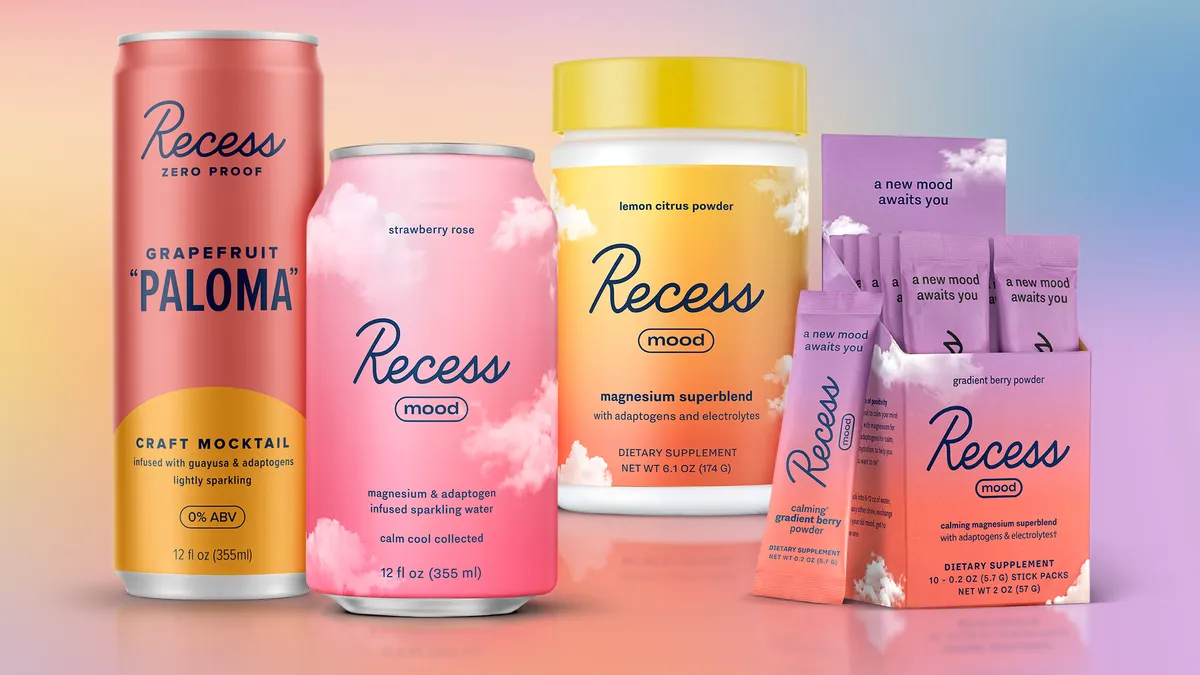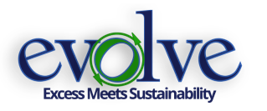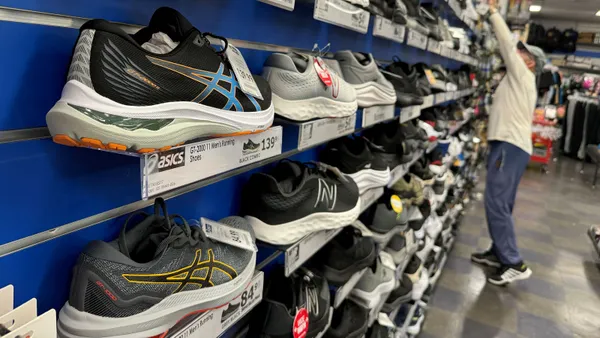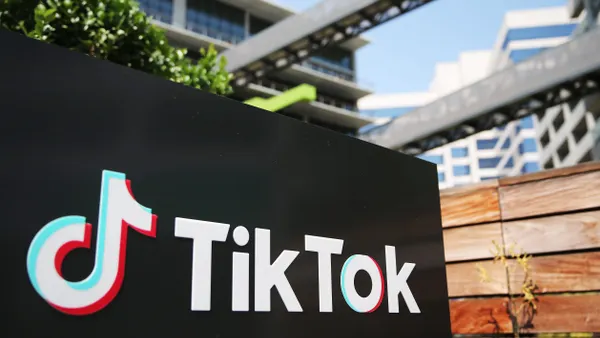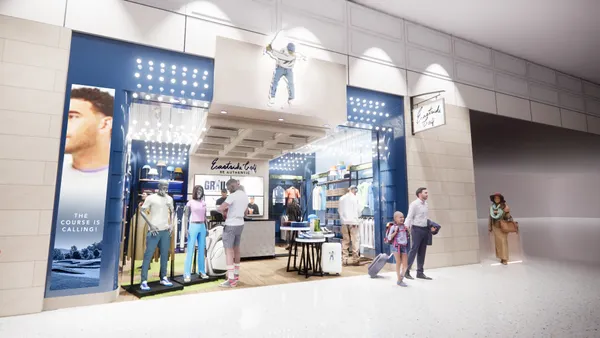Dive Brief:
- DTC beverage brand Recess has expanded its products into 5,000 additional locations, increasing its coverage to 14,000 stores.
- The company has expanded into such retailers as Target, Albertsons, CVS, H-E-B, Sprouts and Winn Dixie, according to a press release emailed to Retail Dive.
- Recess, which launched in 2018 selling CBD-infused beverages, has branched into selling magnesium-based drinks and powders, as well as mocktails. Recess Mood and Recess Zero Proof Craft Mocktails make up over 75% of its sales, per the company.
Dive Insight:
The Recess beverage collection spans three lines, the first of which was its hemp-infused sparkling waters. The other two are Recess Mood (magnesium and adaptogen canned sparkling waters and powders) and Recess Zero Proof Craft Mocktails (functional mocktails to mimic canned cocktails).
The brand’s Mood Powders recently launched at H-E-B stores and will roll out to 4,000 CVS locations this month. Recess’ Mood drinks are now available in more than 175 Target stores, in multiple Albertsons divisions within more than 250 stores, at 125 H-E-B stores and more than 300 Winn Dixie stores. The brand’s Zero Proof Craft Mocktails are available in almost 400 Sprouts nationwide with company plans for rolling it out to additional retailers soon.
Despite its aggressive retail partner campaign, Recess still says that 60% of its sales are done through e-commerce.
“These retail launches solidify the growing consumer demand for relaxation products and demonstrate that the Recess brand platform is delivering on that increased desire across multiple formats, including our Recess Mood and Zero Proof collections, Ben Witte, founder and CEO of Recess, said in a statement. We’re thrilled with this retail expansion as it allows the benefits of Recess to be available to more shoppers nationwide.”
The global relaxation beverages market size was valued at $368 million in 2021 and is predicted to be worth $1.27 billion by 2030, with a compound annual growth rate of 15.2% from 2022 to 2030, according to a July 2022 report from Acumen Research and Consulting. The report attributes some of the increase in this category to growing cases of anxiety and insomnia.
A separate report from Grand View Research is projecting the category to reach $1 billion in the U.S. market by 2025.


